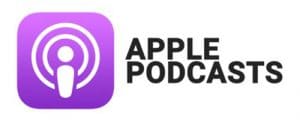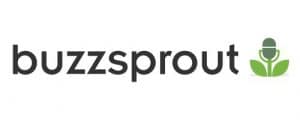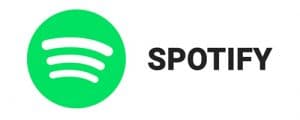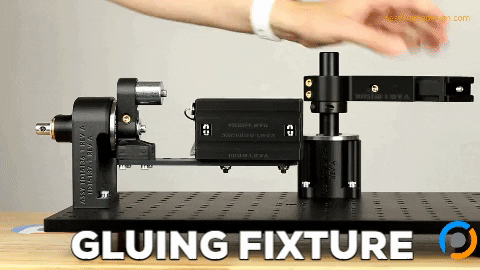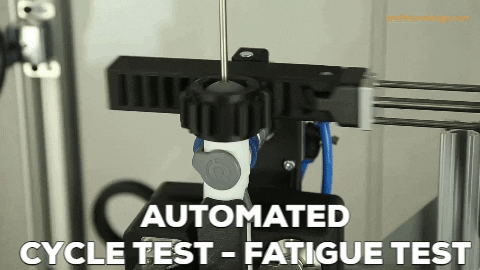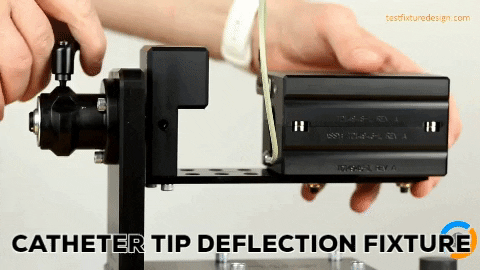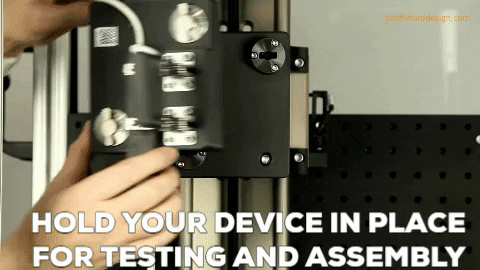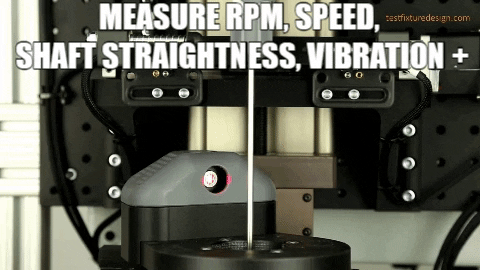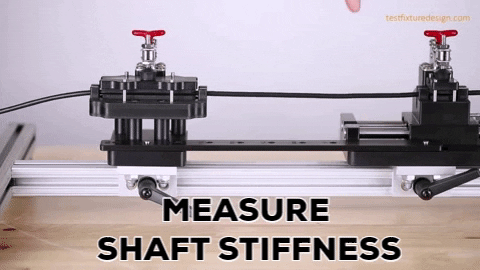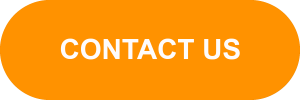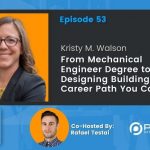Sol Rosenbaum Networking, Public Speaking, & Fitting Equipment Through Doors
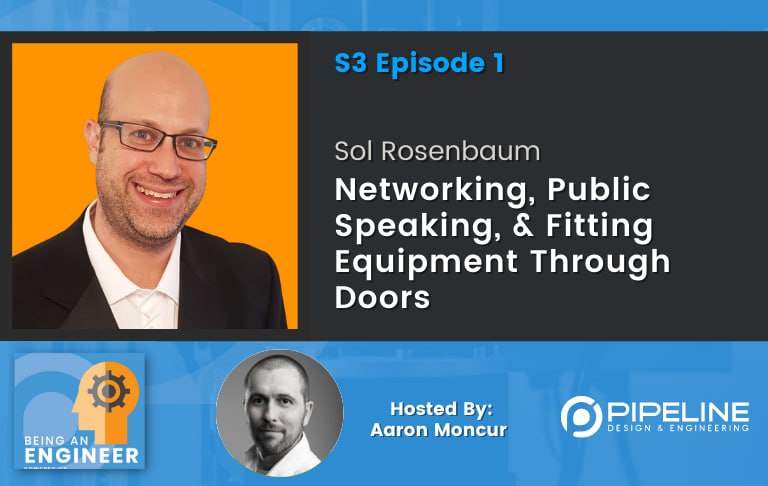
“This is something that I think is important for younger engineers to know a lot of them get worried about having a passion, they don’t know where they want to end up, and they get all concerned like, oh my god, it’s like this crippling fear that some of the people in their class have this great goal of where they’re going, it’s okay to not know and that’s really, totally fine, you’ll develop a passion, you’ll be fine. – Sol Rosenbaum”
Who is Sol Rosenbaum?
Sol is an energy engineer with both Bachelor’s and Master’s Degrees in Mechanical Engineering. He enjoys helping building owners with financially viable energy savings projects. In addition, Sol Rosenbaum is passionate about mentoring younger engineers, and as a result, he founded TheEngineeringMentor.com where he assists people in the industry finding jobs, networking, and learning non-technical skills.
EXPAND TO VIEW EPISODE TRANSCRIPTION
SUMMARY KEYWORDS
engineers, engineering, people, project, networking, work, good, learn, easier, talk, remember, hard, energy, problems, design, feel, class, told, equipment, thought
SPEAKERS
Aaron Moncur, Presenter, Sol Rosenbaum, Rafael Testai
Presenter 00:00
The being an engineer podcast is a repository for industry knowledge and a tool through which engineers learn about and connect with relevant companies, technologies, people, resources and opportunities. Enjoy the show.
Sol Rosenbaum 00:16
And this is something that I think is important for younger engineers to know a lot of them get worried about, you know, having a passion, they don’t know where they want to end up, and they get all concerned like, oh my god, it’s like this crippling fear that, you know, some of the people in their class have a great goal of where they’re going, it’s okay to not know and that’s really, totally fine, you’ll develop a passion, you’ll be fine.
Aaron Moncur 00:52
Hello, and welcome to the being an engineer podcast. We are speaking today with Sol Rosenbaum, who is an energy engineer with both bachelor’s and master’s degrees in mechanical engineering. Saul is also passionate about mentoring younger engineers, so much so that he has founded the engineering mentor.com, where he helps people in the industry, find jobs, network and learn non technical skills. So welcome to the show.
Sol Rosenbaum 01:20
Thank you, Aaron, for having me. Pleasure.
Aaron Moncur 01:23
What made you decide to become an engineer?
Sol Rosenbaum 01:27
You know, I think it’s sort of the classic where I like math, I had a lot of family members who were in engineering. I like tinkering with stuff, taking them apart. And it just seemed like a natural progression.
Aaron Moncur 01:39
Is there anything that you can remember specifically, when you were a kid a situation or an instance where you thought to yourself, and maybe you didn’t even have the vocabulary yet to contextualize it within the framework of engineering, but something happened, and you were like, oh, yeah, this, this is what I love doing. This is what I want to do, you know, for the rest of my life and anything like that, that you can think of like a little project or an experience that you had,
Sol Rosenbaum 02:07
you know, it’s funny, because I didn’t really have that, again, it sort of happened naturally. But there are times where you sort of like, look at other engineers, you look at things you’re like, Wow, that is really cool. And one thing that comes to mind, I was actually in my grandmother’s house after my grandfather had passed away. And she asked me to look at the television to try to fix something for her, some snare playing around with it. And now this isn’t pretty old television. And I noticed, you know, on the side, there’s a place to change the channels. There’s a little thing that changed channels on the front. There was also sort of, I guess, the predecessor to the remote control. It was like a wired connection. And I said to my Grandma, I’m like, wait a second, what is going on here? She’s like, Oh, yeah, Grandpa actually put that together from three televisions. So I’m not so sure. I’m like, you know, it’s bad enough to try to figure out what’s wrong with this old television, but things like that. So I think there is something you know, when you start seeing things like that, you see people just building things and taking care of problems and making their own solutions. That always resonated with me.
Aaron Moncur 03:13
That’s a fantastic story. Thank you for sharing that one. So you’re an energy engineer. What? What is an energy engineer? And how did you get started doing that?
Sol Rosenbaum 03:25
Right? Well, I actually started a little bit by luck, because I never heard of the field. And this is something that I think is important for younger engineers to know a lot of them get worried about, you know, having a passion, they don’t know where they want to end up. And they get all concerned like, Oh, my God, it’s like this crippling fear that, you know, some of the people in their class have a great goal of where they’re going, it’s okay to not know, and that’s really, totally fine, you’ll develop a passion, you’ll be fine. When I was finishing up our engineering school, I was looking to move down towards the Baltimore area, because we had family there. And I found this small firm, it looked like it was doing more MEP like HVAC type of design work. And I didn’t really know at the time, how involved they were in energy projects. So everything that they did was within the realm of an energy project. And the type of the area within energy engineering that I work is all about energy efficiency. So we’re dealing with existing buildings, and trying to either change their systems, fix their systems, tweak their systems, how they operate, and just changes so they’re using less energy or less water. I don’t deal a lot with renewables, which is a big part of the energy engineering world. And a big part of people like when they hear about energy engineering, that’s often what they focus on, but I’m strictly in the energy efficiency side of things.
Aaron Moncur 04:49
Got it? Okay. So you’re looking at an existing building and trying to figure out how to reduce the the amount of water or electricity that’s used. What are what are some Common areas that you look at, is there some typical low hanging fruit where you you start your analysis on a building like that,
Sol Rosenbaum 05:07
right? Well, I mean, the easiest one is always lighting and lighting controls, that’s sort of a gimme, because you go straight to LED lighting, and bam, you just cut your usage down by 75%. But there’s a lot of other things you have to look at, as well. There’s the HVAC systems, and also their controls, a lot of them are just set them run 24/7, they don’t even think that, hey, there’s nobody there at night, there’s nobody there in the weight on the weekends, so they’re not operating properly. There’s also the physical aspects of the building your windows, your roof, if you have a lot of air infiltration points, so you really have to look at it as a whole. And the other thing that I like to look at, you know, because most a lot of my work now is within the mortgage finance industry. So we’re working with various green loan programs. So it’s okay, how here are the possible measures? How does this fit into what you’re planning on doing anyway? Perhaps some renovations that you want to do? And then how does this fit into the financing that you’re going to use, if any, for those projects?
Aaron Moncur 06:14
Can you think of and share maybe one or two energy projects on which you work that you thought were particularly interesting or noteworthy, for whatever reason, just share a little bit about what the project was, and why it was so interesting or noteworthy, and maybe something that you learned from those projects?
Sol Rosenbaum 06:39
Right? Well, I think that, you know, one of the cool things about my field is that I’ve been involved in lots of various cell types of facilities. One really cool one was actually out on I forget, the name of the place was out, sort of on the London shore on Maryland. And it was a research ocean research facility. And they had, you know, it’s like Finding Nemo, fish, whatever those like clown fish, I think they’re actually called, they had like, 10,000 gallon tank filled with them. They had just all these crazy items there. And I remember looking at the list of measures that were proposing. And this was what we call a level three audits. So basically, they’re ready to go forward, we’re really looking at the details of the design and getting bids in from contractors. And I remember seeing one item there that had, you know, a 45 year payback. But it was an item that would not have lasted more than 1520, maybe 25 years. And I said to the guy I’m working with like, what’s going on here? What Why is that in there? It’s not, you know, big projects, you know, in the general scope. But why is this even involved at all. And he said, because one of the guys need to get buy in on this project, wanted that grant was actually a ground source heat pump. Now, there’s definitely advances in technology. But at the time, this really was not from an energy saving standpoint, this was not a good measure to do. But what I learned from that one was basically, when they needed that buy in, and they said, hey, we’ll throw your pet projects, no problem. And it’s really about looking at all these products holistically. Yes, that little that measure did not pay for itself, it was not worth it. But it was such a small part of the overall energy project. It didn’t matter. And that’s really honestly, the way I talked to everybody about the energy projects. If you make it economically viable, people will do it. And that’s really simple as that.
Aaron Moncur 08:39
So this this guy, I guess he had, he was one of the stakeholders maybe. And it was really important to him to have this this heat pump or whatever it was. And so to get his buy in, the rest of the team said, Okay, well, we’ll include this thing, even though it doesn’t make financial sense. Overall, the project makes a lot of financial sense. But this one line item, even though it doesn’t make financial sense, we’ll do it so that we can get your buy in on the project.
Sol Rosenbaum 09:03
Exactly. And that’s why very often, even though it’s the engineers and the, you know, maintenance guys that are working on the equipment that we deal with, I often say that it’s the financial officer who’s the most important person, because if you can show him, hey, this makes financial sense. Yes, you’re gonna invest $100,000 today, but now you’re gonna be saving 15 $20,000 a year on your energy bills. Okay, now, now we’re going to talk about,
Aaron Moncur 09:29
yeah, I know exactly what you mean, I spend a lot of my time quoting new projects. And I have found that and you can’t always get all the information necessary to do this. But when I can get enough information to understand the return on investment to the company, and I can put together a proposal that shows Yeah, well, just like you said, so you’re going to spend $100,000 today, but over the next couple of years, this is going to make you you know $2 million, or whatever it is, if you can show that right Turn on investment and paper, it makes it a lot easier for the customer to say, Yep, let’s do this, right.
Sol Rosenbaum 10:06
And I think one of the other problems that we run into, you know, in my field, because I’m dealing a lot with buildings, but also you see a lot with the worlds of infrastructure and like roads and bridges, is that it’s really hard to sell a project and say, Hey, you’re going to invest a million dollars today. But you’re going to save, you know, energy savings are easier to prove. But to try to tell somebody, you’re going to save the maintenance every year. That’s something that is really tough. And that’s why you get capital projects, you often have a hard time selling them to the public, and they just kick the can down the road and say, hey, you know what, yeah, whatever it is, all of a sudden they find the money when there’s an emergency repair. But at the beginning, they didn’t have the money. So yeah, I think I’m looking at it holistically as well, I think they it’s not a lot of problems overall.
Aaron Moncur 10:52
Yeah. What how? How is engineering, energy engineering changing these days? Well, what are some trends that those of us who aren’t in the industry, and just wouldn’t even have the opportunity to come across these? What are some trends out there that you can share with us?
Sol Rosenbaum 11:09
Right? Well, actually, I was just that the the Association of Energy Engineers had their conference two weeks ago, in New Orleans, one of the things that I actually found very surprising is that, you know, I like I’ve been saying, I strictly go from an ROI standpoint, let’s make it worth the money, people will do the projects. But what we’re finding is that there’s actually a lot of people that are moving towards ESG, there’s a environmental sustainability, sustainability governance, where they’re willing to do some, as projects really be for the better good, or the PR aspect of, of these projects, which is something totally new that I’m not used to at all. So really, you do have people who are saying, hey, you know what, this is a good project. You know, maybe it’s breakeven, whatever. But yeah, but we’ll go ahead and go for it. I think, and obviously the other side, it’s
Aaron Moncur 11:58
so good to hear that gives me some faith in humanity. Right? Yeah. No,
Sol Rosenbaum 12:02
it’s, it’s true. I think that I think that easier sell overall is always based on the dollars. If somebody, if somebody says, Hey, I’m saving money, they’ll do it. But I think this is another angle that we can take to religious help push projects through.
Aaron Moncur 12:18
Yeah, you have your P, your professional engineers license, and you feel strongly about the value that it carries. Can you talk a little bit about that?
Sol Rosenbaum 12:28
Right. So I definitely would not be where I am today, if I didn’t have the PE, because there are times where that was required. But I think that this is something that you don’t always know that you need in your career. And you also don’t know when you’ll need it. One of the mistakes I made early in my career, it’s really just not knowing anything about it, or what the PE could even get you. So just for those in your audience who don’t know, it’s really like an official sign off. It deals, you know, civil engineers, very needed, probably the most out of any, any one of the disciplines, for mechanical and electrical will need it as well. And it generally has to do with things that are within the common good. So if you’re the engineer on record, you’re signing off, you’ll need it. This was something that was never told to me in undergraduate. So I basically got out of my graduate degree, first finding out about it, and my first job of why anybody would want a PE. And then I started going through the process a little bit, only to find out that the first step is to take the fundamentals of engineering exam, the FE or EIC exam. And so I didn’t take that exam till I was like two and a half or three years out of my graduate degree. And let me tell you, it really sucks. Because it’s not supposed to be that exam is not supposed to be ridiculously hard. It’s basically a review of your undergraduate degree. So I tell everybody, you may not know if you’ll need the PE down the road. But take the FE right when you’re eligible, which is right when you finish your engineering degree. And worst case scenario, you spent two or three months studying for it, and then never needed it. But it’s a lot better than my scenario where I took it. And it was way harder than it had to be. Because I mean, I was touching stuff that I hadn’t seen in six years. So made life a lot harder. Sure.
Aaron Moncur 14:23
Yeah. Bet. How did you pass the first time? How long did you have to study before you
Sol Rosenbaum 14:29
I passed the FE on my first try, I definitely studied for several months to five, you know, four or five months. And one of the things I also would highly recommend everybody do is just set the exam date. Because if you don’t have an exam date, you’re actually studying towards that you could just always feel like you’re not ready. You’re ill prepared and you’ll never actually bite the bullet and make that make that date. And then yeah, I took the PE I do remember a fine, you know for our four hours in the morning Lunch break for hours in the afternoon, crazy exam. You know, you walk out of there and you, you feel shell shocked. You really don’t know what happened. But I do remember when I got, you know, this is before you know, SMS is, you know telling you that you got the past, I got a letter in the mail telling me that I passed the PE, and I wouldn’t run it through the house screaming enjoy. It was awesome.
Aaron Moncur 15:22
What a great feeling. Oh, yeah. Let’s be kind of like passing the bar, I would think right for lawyers.
Sol Rosenbaum 15:28
Yeah, yeah, I think it’s, it’s good to listen, I don’t know if it was harder or easier. But yeah, it’s certainly along the same vein.
Aaron Moncur 15:34
Very cool. Well, let’s talk a little bit about the engineering mentor.com. How did you get the idea to start this? And what is it? So
Sol Rosenbaum 15:45
essentially, I wanted to be a resource for younger engineers, to get some of the guidance and mentorship that I received in my career. I’m, you know, you get further along in your career, and you don’t realize how lucky you were sometimes. But I was talking to several other engineers, and I mentioned something about my mentor some of the guidance. And I start to see these blank faces that they were like, Wait, what are you talking about? And I just explained to them how, listen, I’m just really lucky, I’ve never had a bad boss, I’ve always had good co workers who would take the time to explain things to me, they would really help me along. And there’s no doubt that I wouldn’t be where I am today. Were it not for their guidance. So this is sort of my way of paying it forward. Because, you know, listen, I do go back and help them sometimes I’ve worked on projects with old co workers with some of those mentors. But the real way I feel like I can honor them is to pay it forward. And just really, really help the younger engineers get the same opportunity that I got. I love
Aaron Moncur 16:45
that. One of the things that you see on your website is that the skills and credentials that truly matter in having a successful engineering career are not necessarily the ones that everyone thinks they are. Can you elaborate a bit on what you mean by that?
Sol Rosenbaum 17:01
Yeah, well, I think that we can all agree that you’re not going to get an engineering job if you don’t have an engineering degree. So that’s really your your basis, that’s your foot in the door, you might need that internship, and you definitely need the degree to get there initially. But the question is, what do you need to take that next step to really have success in your career. And in my opinion, I believe that networking is probably one of the biggest skills you can have, as well as public speaking, right, your writing skills, and then also various licensing and certifications that you get after your degree. So it’s really, you know, get your foot in the door, that foundation you have from the degree, then taking the next step, you really have to add some extra skills
Aaron Moncur 17:46
terrific. And I’d like to dig into some of those in greater detail in just a second. I’m going to take a short break here and share with the listeners that Team pipeline.us is where you can learn more about how we help medical device and other product engineering or manufacturing teams develop turnkey equipment, custom fixtures and automated machines to characterize, inspect, assemble, manufacture and perform verification testing on your devices. We’re speaking with Saul Rosenbaum today. So one of the things you mentioned Saul was networking and the importance of networking. Are there any pro tips you can share for how engineers should be thinking about networking and going out and executing those networking actions? Right. So I
Sol Rosenbaum 18:31
think the first thing to start with is really a mindset that a lot of people have that okay, you know, yeah, networking sounds good, I’m gonna go ahead and do that when I need a job. So they wait for the need to come along. And then they start networking, when in reality, now you’re already, you know, 10 yards behind it, I like to compare it to, you know, preparing for a hurricane. If you see that storm making landfall, and you still haven’t boarded up your windows, you still haven’t bought your supplies, you’re screwed. What you want to have is all of those boards in your garage, you want to have all those, you know, food supplies stored up somewhere so that it’s ready when you want to. And the truth is, if you know a storm is coming in a few months, you can take your time, there’s no rush. The same thing with networking. You want to start now, wherever you are, if you’re in engineering school, if you’re out of engineering school, wherever you are, just start now and slowly build that network. So that when you get to the point where you do need it’s it’s a real quality network, you’re not just slapping it together, the last minutes. The other thing I was gonna say is that I think it’s important for people to know that you want to have a specific type of engineer that you’re trying to reach out to. But then you also shouldn’t limit yourself just to that type of person. Be open with who you connect with because you really never know who they know or where that connection can lead.
Aaron Moncur 19:59
Great point. Can you share? What are a couple of really tactical, actionable things that any engineer listening to this could go out? And do or start doing today? To get started networking? You know, where do they go? What are they start looking for these opportunities?
Sol Rosenbaum 20:19
Right? Well, I think the first place to look is with the people that are around you. I think a lot of people sometimes ignore their co workers, they ignore their classmates, they don’t see that as networking, they want to, like reach out and go, sort of out to the world. So it is important to make sure you’re making connections with the people around you. So that, you know, when you move on, when they move on, you still keep that connection with them. The other thing that is very important is I don’t like to call stalking, but you definitely want to know a little bit about a connection before you reach out to them. So you know, you can find people on LinkedIn you find on Facebook search, what they’re doing, just put their name into Google and see what they’re up to. If you can find some sort of connection point where you have a similarity with them, that’s something that you want to bring up and something you want to use as a as a connector, because it’s really going to help help, you know, pull you into their, you know, team in that aspect. And they’re really much more likely to help you out.
Aaron Moncur 21:19
Yeah, excellent. You’ve written quite a few articles on on your website about what it takes to succeed as an engineer. We’ve kind of tangentially talked about some of these things. But I wondered, Can Can you briefly summarize one or two of your favorite articles that that you’ve written?
Sol Rosenbaum 21:41
Well, I think that there’s a couple of them, I think, the public speaking article that I wrote that one, I got a lot of responses from people, because there are a lot of people who, when they hear public speaking, in their mind, they’re thinking, Tony Robbins in front of 10,000 people, getting them all riled up. So when you mentioned to them, Hey, you know, public speaking could really be good for your engineering career. They look at you and go, Yeah, that’s not for me, I have no intentions of moving in that direction. But when you start to talk to them, and let them realize that public speaking skills can help you, when you’re in front of three people, in your small department meeting, when you’re having a bigger strategy meeting, when you have some investors coming in, you need to talk to them. Because at the end of the day, if you can’t clearly convey your ideas, it really doesn’t matter how smart you are, you’re going to get passed over to some extent, you’re not going to reach your full capacity. So that I think, was a real mindset shift for a lot of people to look at public speaking as something that can really help them, you know, even in an interview. But as opposed to only the Tony Robbins. The other article that got a lot of response was with regard to failing a class. This is something that a lot of younger engineers do not talk about. If they fail a class in undergrad, none of their friends know. They don’t tell anybody. And they feel like oh my god, I’m the only one that’s ever happened to. But the reality is, people fail classes. It’s okay. It’s real. You know, if you’re listening if you’re failing every class, okay, we got to talk about that. We got to figure out what you’re doing. But if you fail one class, it’s not the biggest deal. It’s really about figuring out okay, why did you fail? What happened there? And let’s move on from here. So that that one got a ton of responses from people who are like, Oh, my God, you’re really talking to me? Like, yeah, I felt the class and I didn’t tell anyone.
Aaron Moncur 23:41
Well, that’s great. I hope people go out. And they’ll find those two articles on your website, the men, the engineering mentor.com. How about for engineers out there who are looking for a job? What advice can you give to engineers who are in the middle of a job search? I mean, should they just fill out a resume and send it to as many people as they can? Or What other advice do you give them?
Sol Rosenbaum 24:05
Right? Well, I’m certainly a very big proponent of networking. But I’m not telling you to do networking, and not do online applications. Online applications are really easy. So even if their effectiveness is not as great, you know, you might as well it’s sort of like, why not, I wouldn’t spend too much time on it, but go for it. The other thing that I think is very important, is to be pretty specific about what type of role you’d like to perform in engineering, but not necessarily what field you’d like to be in. Because there’s a lot of engineers that what they’re actually doing can be done in various disciplines. It doesn’t really matter. And, and really, also just be open about the types of jobs that you’ll you’ll try. I think goes back to what we were saying earlier about having a passion. You don’t have to have a passion right off the bat. Just start out follow what you think sounds good. You think will give you some good opportunities to learn some skills get some good Experience and go for it because those patterns will develop over time.
Aaron Moncur 25:05
Yeah, agreed? I actually don’t know the answer to this question. Do you do like one on one coaching with engineers? Or is your website just a place where engineers can come and read articles that you’ve written and learn generally about the skills required to become a successful engineer, but but there’s no like one on one coaching.
Sol Rosenbaum 25:30
Right now I do. Very limited. one on one coaching, I actually just launched a networking course, that registration is now closed. But that’s something that I’m adding in there. One of the reasons why I wanted a lot of the stuff on the website, is because I want the largest number of people to be able to get at least you know, this basic stuff, you know, yes, I do have some one on one coaching that I do. Now, then I do have the courses. But I want everybody to still be able to come to the website and gain a lot of value, they still have access to me, they can send me a message, I’m happy to help where I can. I think that that’s really the most important thing, let them get that basic level. Because, honestly, you know, not to brag, but I think my my free material is pretty decent, I think they can gain a lot from it. So they should just go for it.
Aaron Moncur 26:19
And it’s a really good point that your material is mostly free, right? I mean, the vast majority of the content that you have is 100%. Free? Yeah,
Sol Rosenbaum 26:27
absolutely. And I have no no intentions of changing that, you know, I would like to, you know, I do have ideas for you know, different, you know, public speaking title gigs, I do have an idea for a book that I’d like to get rolling. But I really never want to leave the roots of having really good quality content for free, so that it’s accessible to the masses.
Aaron Moncur 26:48
Okay, all right, I’m gonna put you on the spot a little bit here. And if you can’t think of a good situation to share, that’s fine, too. But I like to ask this question sometimes, because I think it can lead to really interesting stories. Has there ever been an occasion where you, you wanted to give up because whatever it was you were working on was just so hard, so challenging? And you just wanted to quit and walk away and say, Nope, couldn’t figure it out? couldn’t succeed? I’m done. I’m just gonna walk away from this, but you didn’t. You kept going, you kept pushing, and you figured it out? You know, whatever this was you, you succeeded at whatever the goal was. Does anything like that come to mind?
Sol Rosenbaum 27:33
Well, I definitely an engineering school. Yeah, that first year of engineering school kicked my ass. That was, I mean, the pace of it was, you know, so much more than I ever had in high school, the load of the of the amount of work that I had to do. You know, in that first year, I sort of looked for it, like, Oh, my God, like, there’s no chance of ever making it through four years. I really, there were definitely times when you doubt it. I think this is something I forget which one of one of Malcolm Gladwell is books, he talks about a failed one. Again, I forget which book it was. But he talks about how sometimes it’s better to be in a sort of a second ranked university, but really succeed there, as opposed to being in a upper rank, or top ranked university, and then feeling like, Oh, my God, I’m drowning here. Well, I was in that top ranked university. So I know that feeling where I was not one of the top students there, and you do feel like you’re drowning sometimes. So I certainly did not see, you know, finishing would be easy. I think once I sort of changed around some of my study habits, I really changed my focus. And also, so that second year became a much easier. And then also, when I got into my junior and senior year, when I started to really enjoy the classes a little bit more, because I wasn’t in these, you know, general engineering classes that everybody was taking, it was more within my major. That helped a lot. But I certainly wouldn’t have thought during that first year, that not only when I finished, you know, really loving it, but that I would actually continue on and go to graduate school, you know, right after that. That’s certainly if you would have told me that freshman year I feel like Yeah, right. I want to I want to make it through a live like this.
Aaron Moncur 29:19
Yeah, I’m glad you brought that up because I had a similar experience. My freshman year, I didn’t have that many engineering classes, actually my freshman year, I’d say it was more like my sophomore year that was really tough for me. I remember I had this physics class kind of remember what maybe it was a electromagnetism physics class and, and it was really hard for me I just I had a hard time wrapping my head around the concepts presented in that class and I remember this one day I was in in a lab trying to figure something out. I just couldn’t you know, wasn’t wasn’t clicking for me. And I just about got up and left. I was so close. But I didn’t and I remembered a guy back Growing up, he was a friend of our family who is an engineering who told me engineering school can be really hard, but get through it. And and it’s, you know, brighter on the other side of school. And I found that to be true to school was hard. And I didn’t love it to be honest. But I really love being an engineer now. So I think maybe a lesson for people listening to this who are still in school is that engineering school is not necessarily representative of what it’s like to actually be a graduated working engineer. Would you agree with that? Or do you think that’s, that’s not the case? Yeah,
Sol Rosenbaum 30:36
I would, I would agree with you. 100%. I would even say it’s stronger. That call engineer, it’s gonna definitely not representative of what you’re going to the future. I mean, I did not like calculus. And I don’t think I’ve touched it since I graduated, except for some of my licensing exams. I haven’t touched chemistry, since, you know, two semesters of general chemistry in freshman year. So I think that, you know, you can’t, you never know where your career is gonna lead. So I think that it is important for all engineers to have that basis. And you also never know if you’ll find that teacher that just sort of lights it up for you that makes that topic interesting, if you really never know. So I would never say get rid of chemistry, get rid of calculus, because some people aren’t going to like it. But if you really don’t like it, you should know it’s okay. You’re right. It’s the light at the end of the tunnel, when you get down to engineering, out of engineering school, and it’s your engineering job. It’s so much easier to avoid things you don’t like.
Aaron Moncur 31:32
Yeah, yeah. All right, this next question? I’ve been asking this recently. And I think it’s a really interesting question. And it can be taken in, I mean, so many different directions. So feel free to take it in whatever direction you think might be interesting or useful to the listeners, what is one of the greatest things that you have ever learned in life?
Sol Rosenbaum 31:54
I would say that there’s a problem in engineering. And that’s that engineers often feel like, you know, we’re sort of the top of the food chain when it comes to a project. But I think the best things that I’ve learned that have really helped with engineering projects have been from the field guys who are doing the installations of the equipment that we designed. And then also the maintenance guys who are keeping it all working, which, you know, for all the calculations and things that we know, if they actually put me in charge that boiler, we’d have problems, like I did all the little old things to pull off things to fix. It wouldn’t work out well. And I think one story I love to tell is, you know, we’re working on a big project that a military base, when the contractor called our office and asked my coworker, hey, that, you know, what are here that you designed? How do you want me to install it? So my coworker was a little confused. He’s like, I don’t know, you’re connected this same way. You’ve connected water heater. He’s like, Yeah, but here’s the problem, the water heater that you designed, I’m sure it’s great for the building load, but it won’t fit in the front door. There’s no way to get it to where it has to go. It’s things like that. You do not learn that in engineering school, that that the practical side of engineering that yes, you need to design the equipment for the process or the load. That’s meeting. But you also need to, you know, practically look, okay, how are we installing this equipment? Nobody’s teaching you to go measure the doorframe. You know, you’re just not learning that. Yep.
Aaron Moncur 33:25
I ran into that same problem just a week ago. Luckily, we weren’t so far down the road that we are actually at the other end of the spectrum, just barely beginning a project. And we’re going through requirements. And one of the questions that came up was how big is the door through which this equipment needs to fit when it gets installed? So it’s a good one?
Sol Rosenbaum 33:45
Well, yeah, well, that’s the reason why they asked you that it’s probably because if somebody like me, who found out the hard way that you can’t fit in there, but I mean, I think that’s, it’s an important lesson that, you know, in some senses, yeah, we’re on different sides of the actual work. But we’re all one team. So I would, I would love to have a world where the technical guys have a little more respect for the engineers, but also the engineers should have more respect for those technical guys doing the installations. It really shouldn’t go both ways.
Aaron Moncur 34:15
Amen. Absolutely. Well, so what what are what are the one or two of the biggest challenges that you have at work?
Sol Rosenbaum 34:24
Well, one of one of the challenges that I had, I actually was doing consulting ended up working full time. After that for one of my clients, they hired me on full time and now I’m back, doing some consulting. One of my big problems back then was really delegating that work, and finding people to work with me. And what happened is that you get a project they say, Hey, can you take this on? And as a consultant, you sort of never want to turn anything down. So you take on too much work and just the hours are killing you. It’s just too much time. So one of the challenges that I have now is really Right. Sorry about that. One of the challenges that I have now is how do you properly train somebody to do the work to the quality that you want, and just let go, you can’t take control of everything. Because if you’re in control of everything, then you might not want to do it yourself. You know, why did you delegate it to begin with? Well,
Aaron Moncur 35:22
I think I think we’re just about ready to wrap things up. Before we do. Is there anything that that we haven’t talked about that you think we should, um,
Sol Rosenbaum 35:32
I think one of the things that, you know, engineers get very closed into their boxes, they don’t look outside. I think, for a lot of veterans, especially those of you who are in engineering school, find some good electives that are not in the engineering world. You know, I took public speaking in engineering school, but it was not with the engine, the engineer, so it really looked at it from a much greater, much broader vantage points. take other classes, meet those other people. And also start learning some of the skills that connect, you know, your engineering work, to other people’s work outside of it. And if you can be that person, that bridge in the middle, it really makes you very valuable in your position.
Aaron Moncur 36:15
Great advice. Great advice. Well, Saul, thank you so much for spending some time with us today. I really appreciate you sharing your wisdom. How can how can people get a hold of you?
Sol Rosenbaum 36:25
I’d say the easiest way is on LinkedIn. I’m very active on that platform. They just look solid Rosenbaum P E. You can find me there. You can also check out my website that you mentioned before the engineering mentor.com Happy to have you on as part of the group.
Aaron Moncur 36:40
Perfect. Alright, so Well, thank you again, so much.
Sol Rosenbaum 36:44
My pleasure. Thanks for having me.
Aaron Moncur 36:49
I’m Aaron Moncur, founder of pipeline design, and engineering. If you liked what you heard today, please share the episode. To learn how your team can leverage our team’s expertise developing turnkey equipment, custom fixtures and automated machines and with product design, visit us at Teampipeline.us. Thanks for listening.
Rafael Testai 37:22
Do your value listener we currently ask that you help us get to 105 Star podcast reviews in their platform of your choice. For a chance to win a $50 amazon gift card send a screenshot of your five star podcast review to podcast at Team pipeline that us you will find that email address in the description of the show notes
We hope you enjoyed this episode of the Being an Engineer Podcast.
Help us rank as the #1 engineering podcast on Apple and Spotify by leaving a review for us.
You can find us under the category: mechanical engineering podcast on Apple Podcasts.
Being an Engineer podcast is a go-to resource and podcast for engineering students on Spotify, too.
Aaron Moncur and Rafael Testai love hearing from their listeners, so feel free to email us, connect on Facebook, Twitter, Instagram, and subscribe on Apple Podcast and Spotify!
About Being An Engineer
The Being An Engineer podcast is brought to you by Pipeline Design & Engineering. Pipeline partners with medical & other device engineering teams who need turnkey equipment such as cycle test machines, custom test fixtures, automation equipment, assembly jigs, inspection stations and more. You can find us on the web at www.teampipeline.us.
******
Valued listener, we need your help getting to 100 podcast reviews. Win a $50 Amazon Gift card if you leave us a review on the Apple Podcasts. Simply email a screenshot of your 5-star review to Podcast@teampipeline.us, the email will be in the show notes. We will announce 5 lucky winners at the end of the first quarter in 2022.
You’ve read this far! Therefore, it’s time to turn your headphones up and listen now to this episode to learn all these. Don’t forget to tell your friends who might like this too!

